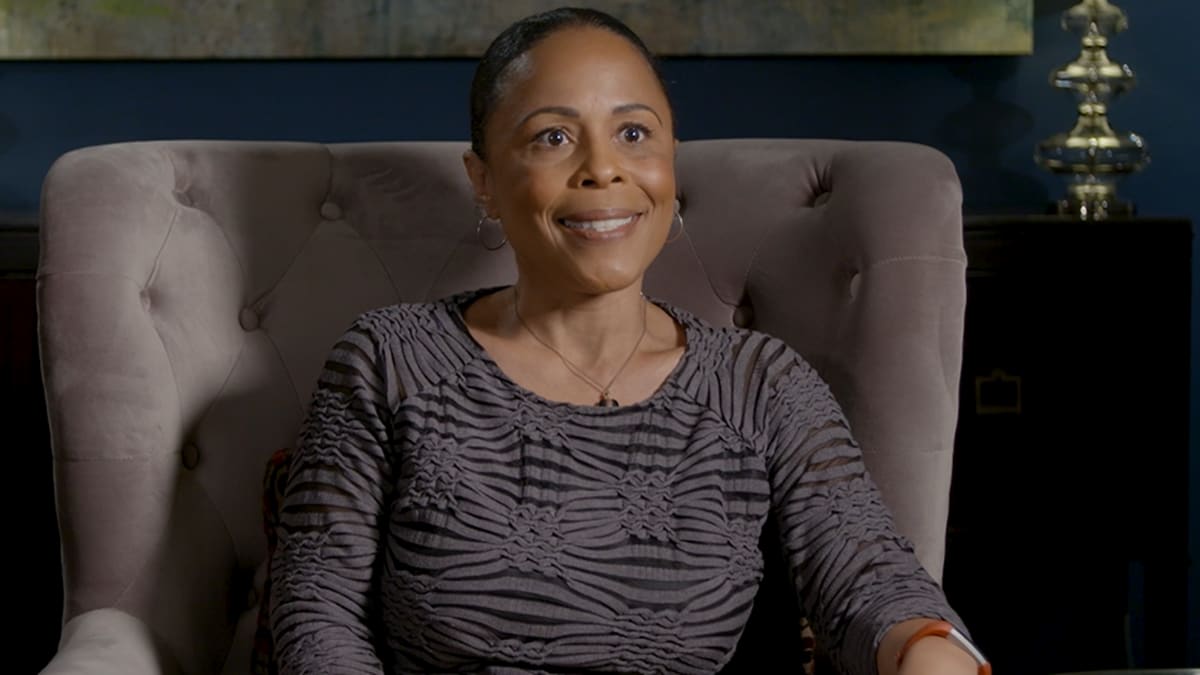Key points
Mildred, a tuberculosis (TB) survivor, describes her surprise when she was diagnosed with TB disease in her epiglottis. With support from her family and nurses from the health department, she completed treatment.

Mildred's story
It started with a cough and sore throat. Whenever Mildred ate, the cough would return and it felt like something was stuck in her throat. "I would look at food and start coughing. So my appetite of course was affected because I was self-conscious about eating in front of folks," says Mildred.
She was initially diagnosed with strep throat and was given antibiotics. But the cough continued. She also began having night sweats and a fever.
After months of worsening conditions she was admitted to the hospital and diagnosed with pneumonia, epiglottitis, and acid reflux. She was given steroids and sent home. The steroids made her feel better for a couple of weeks.
Diagnosis and Mildred's concern for others
But soon the cough returned. And it came back worse. One night, a couple of weeks later, she was up all night coughing and couldn't keep any food down. She knew something was very wrong and went to the hospital. After six months of uncertainty, she was finally diagnosed with active TB disease in her epiglottis.
TB usually affects the lungs. TB can also affect other parts of the body, such as the brain, the kidneys, or the spine. TB can also affect multiple parts of the body at the same time. For example, TB can affect both the lungs and lymph nodes.
"One of the main concerns I had when the diagnosis with TB was made was everybody else. You know, as soon as you learn that you're infectious, as soon as you learn that for the last six or seven months you've been exposing everybody you see – and you're thinking the Metro. You're thinking your job, you're thinking your family," Mildred recalls.
Treatment
After her diagnosis she began treatment for active TB disease in the hospital. Once she was no longer infectious, she was released from the hospital. She then began working with her local health department to complete treatment.
It took some time for Mildred to adjust to the TB medications and their side effects. But with the help of her family, especially her mom’s home-cooked meals, and the health department, she was able to complete her treatment.
Support from the health department
The health department staff that helped Mildred during this difficult time made a lasting impression. Before this experience she never thought twice about the health department building she would often pass by in her town.
“I never realized what was really going on behind those walls until I actually started dealing with those folks. And they’re like angels. I couldn’t believe it. I’m like, ‘Who are these people?’ I mean, they affected my family, my parents, everyone and I’m like I didn’t even know you guys did this. I didn’t feel supported medically until they stepped in,” says Mildred.
Mildred's message
Now that she is fully recovered Mildred is able to reflect on her experiences. Mildred's advice to someone who has been recently diagnosed with TB is "stay strong and use all your resources, educate yourself the entire time, you know, talk to your doctors and demand the care that you know you deserve to get well."
Mildred is a part of We Are TB, a network of TB survivors.
